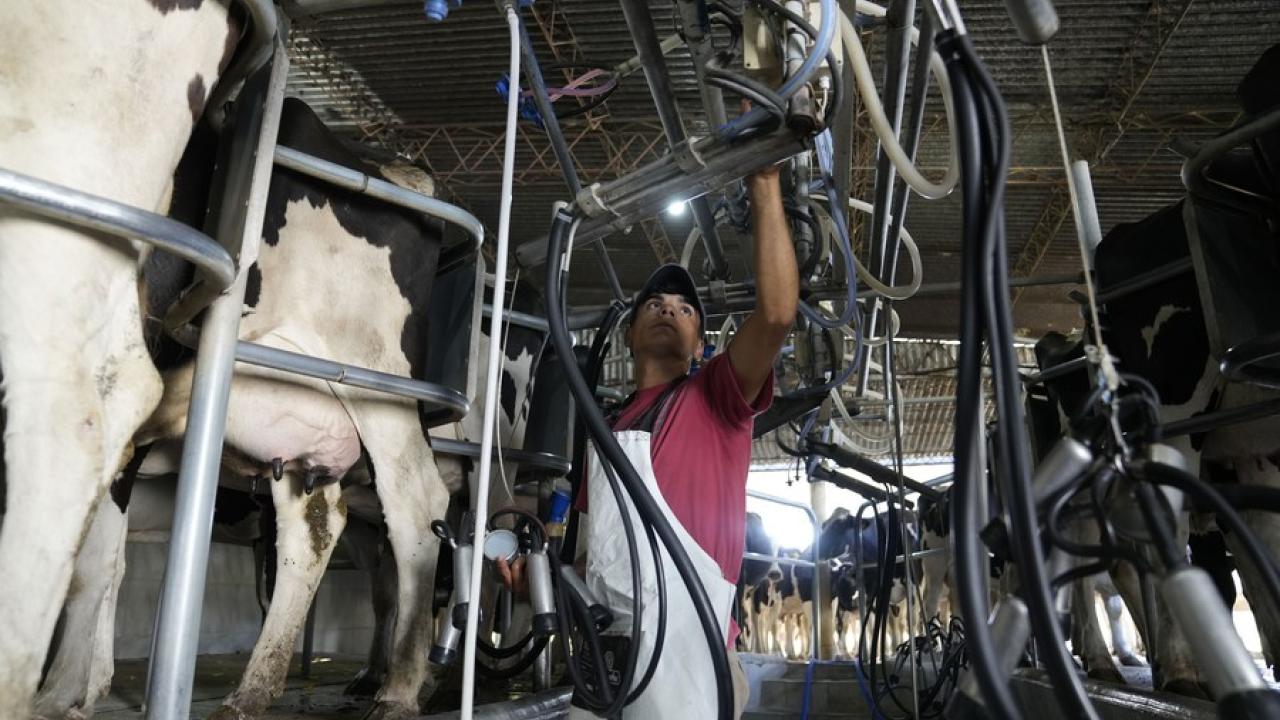
A report detected a decrease in the number of remissions made during July, in the number accumulated during 2024 and in the number considering the last 12 months.
Bad news for the Uruguayan dairy sector, derived from the drought that has been dragging on for months; the drop in milk production and its shipment to the country's industrial complexes, considering both shippers and own milk, can be seen in the three indicators considered by the National Milk Institute (Inale) in one of its monthly reports.
Specifically, the report detected a decrease in the number of remissions made during July, in the number accumulated during 2024 and in the number considered over the last 12 months.
In this regard, during July the remission fell 9.2% compared to July 2023.
From January to July 2024, the decrease is 5.2% compared to what happened in the first seven months of last year, while in the last 12 months (August 2023 to July 2024) there is a decrease of 2.1% compared to the same period last year.
Justino Zavala, member of the Canelones Dairy Farmers' Association (ATC), pointed out that although the drop in shipments is noticeable when measured in liters, "it is not so noticeable if the volume in solids, that is, fat and protein, is considered as a measure. Which is positive," he indicated.
He also commented that there is no reason to explain this drop in remission measured in millions of liters, that there are multiple factors and that the most important is the climate.
The drought that occurred last year "was very hard for many people and especially for dairy farmers," he recalled.
The consequences continued after this adversity, with severe economic and financial problems, and everything became more complicated during the autumn of this year, in this case due to excessive rains and with producers no longer able to invest in feeding their herds in the best possible way.
The drop in prices last year also had an impact on production, he said. Zavala said that although there was some attendance, "which is always very welcome (...) it was late."
Additionally, Zavala said that there is now renewed hope, "with expectations for the arrival of a spring that is late, as the intense cold has persisted," but that it is hoped that it will be a milestone, "so that the pace changes and a positive period begins," requiring that there be no new climatic setbacks.
THREE FALLS
Milk sent from dairy farms to industrial plants in Uruguay during July totaled 171.2 million liters – with 13.1 million kilos of solids, i.e. fat plus protein, 9.7% less.
Taking the period from January to July, 1,042 million liters were sent – with 81.6 million kilos of solids, 3.5% less.
Finally, considering the last 12 months, 2,057 million liters were sent – with 158.5 million kilos of solids, 0.2% less.
In the 2024 records, the July shipment (171.2 million liters) was the largest based on monthly measurements, with the lowest volume in February, at 132.7 million liters.
Based on data since 2002, the highest monthly record was in October 2020 with 222 million liters and the lowest was in May 2003 with 68.7 million liters.
The best annual record this century was in 2021 and the lowest was detected in 2002 (1,109 million liters).









